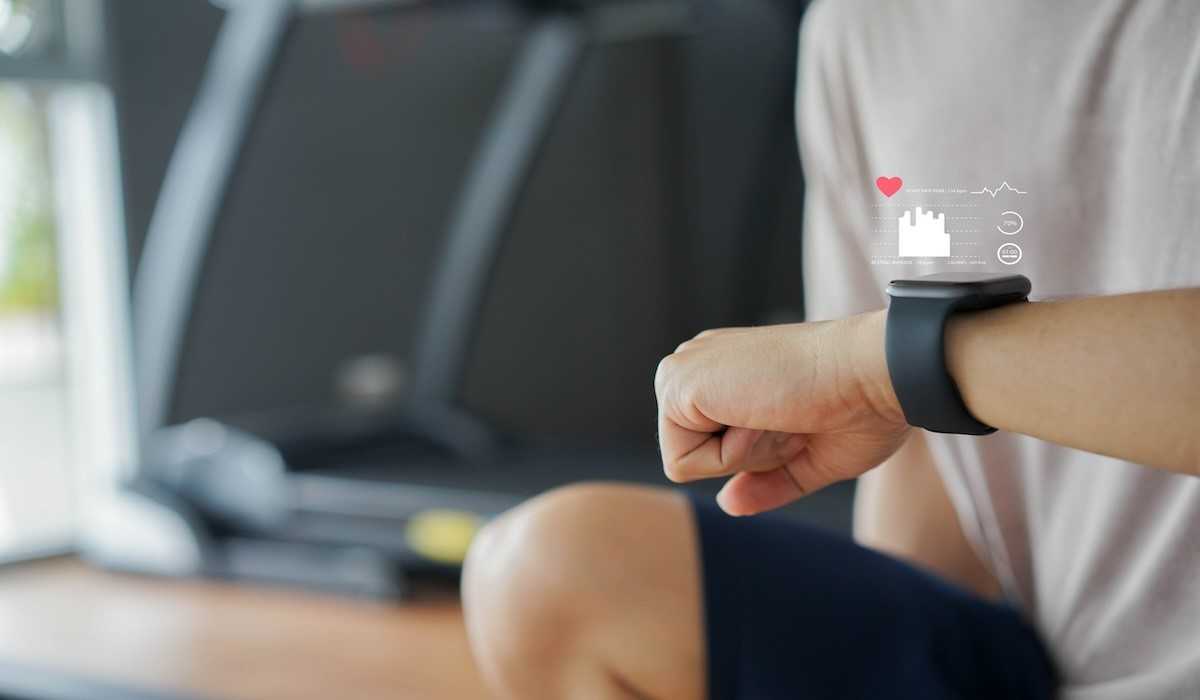ARTICLE SUMMARY:
Sensor technologies play a transformative role in medtech, particularly in clinical trials. Wearable and implantable sensors are revolutionizing patient monitoring, data collection, and personalized healthcare, offering continuous, real-time insights and improved patient outcomes. By Derek Thomas, Global Client Executive, MedTech, Medidata.

Medidata
Medidata, part of Dassault Systèmes, offers industry-leading expertise and analytics-powered insights in clinical trials, supporting 34,000+ trials, 10 million patients, and the world’s largest patient-level clinical trial data set.
Over the past decade, the field of medtech has undergone significant advancements, particularly in clinical trials. One of the most transformative innovations has been the adoption of sensor technologies. Sensors, both wearable and implantable, have revolutionized patient monitoring, data collection, and overall healthcare delivery. This article explores the pivotal role of sensors in medtech clinical studies, highlighting their impact, potential, and the growing market demand for these technologies.
The Evolution of Sensor Technologies in Medtech
The journey of sensor technologies in medtech began with basic apps, such as heart rate monitors and fitness trackers. While these early devices provided a good start, they provided limited data and required manual intervention. However, technological advancements have led to the development of sophisticated sensors capable of continuous, real-time data collection. These sensors have become integral components of clinical studies, providing invaluable insights into patient health and treatment efficacy.
While wearable sensors—such as smartwatches and fitness bands—have become ubiquitous and enable the continuous monitoring of vital signs, such as heart rate, blood pressure, and oxygen levels, more recently, the focus has shifted toward implantable sensors, which offer several advantages over their wearable counterparts. These devices, which offer even greater accuracy and reliability, are embedded within the body and provide continuous data without the need for patient intervention, ensuring seamless monitoring and improved patient compliance. Moreover, implantable devices can measure parameters that are not easily accessible through wearable sensors, such as intracranial pressure, blood glucose levels, and neural activity. This opens new possibilities for monitoring and managing a wide range of medical conditions, from diabetes and cardiovascular diseases to neurological disorders and chronic pain.
The development and implementation of implantable devices require rigorous clinical studies to ensure their safety and efficacy. These studies involve extensive testing, data collection, and analysis to demonstrate that the devices can reliably perform their intended functions without causing harm to patients. Given the complexity and novelty of implantable devices, clinical studies in this area often face unique challenges, such as ensuring long-term biocompatibility, managing potential risks, and navigating regulatory requirements.
The Impact of Sensor Technologies on Clinical Studies
Sensor technologies have transformed clinical studies by facilitating remote monitoring and reducing the need for frequent hospital visits. This shift was particularly beneficial during the COVID-19 pandemic when minimizing physical contact was crucial. According to a recent study, the use of remote patient monitoring technologies has resulted in significant safety, adherence, quality of life, and cost-related outcomes (Tan, 2024).
The ability to collect continuous, real-time data has also improved the accuracy and reliability of clinical studies. Traditional methods of data collection, such as periodic check-ups and patient self-reporting, are prone to inaccuracies and inconsistencies. In contrast, sensors provide objective, quantifiable data that can be analyzed to gain deeper insights into patient health and treatment efficacy. This can lead to higher quality clinical data which can help develop robust and comprehensive data packages for both regulators and payers.
One of the most significant advantages of sensor technologies is their potential to personalize healthcare. By continuously monitoring a patient’s vital signs and health parameters, sensors can detect early signs of deterioration and trigger timely interventions. This proactive approach can prevent complications, reduce hospitalizations, and improve overall patient outcomes.
Sensor technologies are poised to revolutionize personalized healthcare (Tyler, 2020; Velasco, 2024). For instance, biological baseline data can be established and monitored so that deviations can be quickly identified and allow for timely intervention. Already, many health-conscious individuals are creating personal health maps, tracking various health metrics longitudinally.
The Growing Market for Sensor Technologies
As someone who has been working in medtech for the past decade, I have observed first-hand the growing need and market for sensors in clinical studies. These devices have emerged as promising solutions for chronic disease management, long-term monitoring, and precision medicine. The global market for health sensors was estimated at USD 42.58 billion in 2023 and is projected to grow at a compound annual growth rate (CAGR) of 19.07% from 2024 to 2030 (Grand View Research, 2024).
Case Studies: Sensor-Driven Clinical Research Successes
Several notable case studies have highlighted the success of sensor-driven clinical studies in advancing medtech innovations.
First, implantable glucose sensors have revolutionized diabetes management. While traditional methods required frequent finger-prick tests and manual blood sugar recording, implantable sensors now provide continuous glucose monitoring with real-time data transmission to devices. Clinical studies have shown that these sensors lead to improved glucose control and reduce the risk of diabetes-related complications.
Second, implantable cardiac monitors have transformed the management of cardiovascular diseases. These devices continuously track heart rhythms and detect abnormalities, providing early warning of potential cardiac events, enabling timely interventions, and lowering the risk of severe complications. Clinical studies have demonstrated that patients using these implantable monitors experience fewer hospitalizations and improved overall health outcomes compared to those relying on traditional monitoring methods.
Challenges and Future Directions
Despite significant advancements and successes, sensor-driven clinical studies face several challenges. Two primary concerns are data security and patient privacy. The continuous collection and transmission of sensitive health data necessitate robust security measures to protect patient information from unauthorized access and breaches. Additionally, ensuring the long-term biocompatibility and safety of implantable devices remains an important challenge to ensure that they do not result in adverse events or complications over extended periods.
Regulatory approval is another challenge that sensor-driven clinical studies must navigate. Regulatory bodies, such as the FDA and the EMA, have stringent requirements for approving new medical devices. Clinical studies must provide comprehensive evidence of a device’s safety, efficacy, and quality before it can be approved for widespread use. This process can be time-consuming and costly, often requiring extensive testing and documentation.
Looking ahead, the future of sensor technologies in medtech clinical studies appears promising. Advancements in materials science, nanotechnology, and data analytics are expected to drive further innovations in sensor design and functionality. For instance, researchers are exploring the use of nanomaterials to create ultra-sensitive sensors capable of detecting minute changes in biological parameters. Additionally, the integration of artificial intelligence (AI) and machine learning (ML) algorithms with sensor technologies has the potential to revolutionize data analysis and interpretation, enabling more accurate and personalized healthcare solutions.
Conclusion
Sensor technologies have transformed medtech clinical studies, offering unprecedented opportunities for continuous monitoring, personalized healthcare, and better patient outcomes. The growing market for implantable devices further underscores the significance and potential of these technologies. Having worked in medtech for ten years, I've observed firsthand the field's impressive progress and the growing demand for sensor-driven research. Despite ongoing challenges, sensor technologies in medtech show immense promise, poised to transform healthcare and improve patients' lives globally.
Medidata is the leading provider of SaaS and data analytics solutions that support clinical research and has been working with customers to help them develop sensor devices through its advanced data analytics and management solutions. By providing comprehensive platforms for clinical trial design, execution, and monitoring, Medidata enables efficient and accurate data collection essential for sensor device development. Its innovative approach helps streamline regulatory compliance and accelerates the path to market for cutting-edge medtech innovations. We support our medtech customers throughout the entire lifecycle of device and sensor development, from ideation to commercialization.
 Derek Thomas is a Global Client Executive, MedTech, at Medidata, which provides customized clinical trial solutions. Learn more about the company at medidata.com. Follow Medidata on LinkedIn and X.
Derek Thomas is a Global Client Executive, MedTech, at Medidata, which provides customized clinical trial solutions. Learn more about the company at medidata.com. Follow Medidata on LinkedIn and X.
References
Grand View Research. (2024). Health Sensors Market Size, Share & Trends Analysis Report By Material Type (Polyurethane, Nylon), By Application (Peripheral Artery Disease), By End-use, By Region, And Segment Forecasts, 2024 – 2030. Available at:https://www.grandviewresearch.com/industry-analysis/health-sensors-market
Tan, S. Y., Sumner, J., Wang, Y., & Wenjun Yip, A. (2024). A systematic review of the impacts of remote patient monitoring (RPM) interventions on safety, adherence, quality-of-life and cost-related outcomes. NPJ digital medicine, 7(1), 192.
Tyler, J., Choi, S. W., & Tewari, M. (2020). Real-time, personalized medicine through wearable sensors and dynamic predictive modeling: a new paradigm for clinical medicine. Current opinion in systems biology, 20, 17–25.
Velasco, E. (2024). How Wearable Sensors Will Transform the Practice of Medicine. Caltech Magazine. Features, Spring 2024. Available at:https://magazine.caltech.edu/post/how-wearable-sensors-will-transform-the-practice-of-medicine
Medidata, part of Dassault Systèmes, offers industry-leading expertise and analytics-powered insights in clinical trials, supporting 34,000+ trials, 10 million patients, and the world’s largest patient-level clinical trial data set.
Learn more at Medidata
